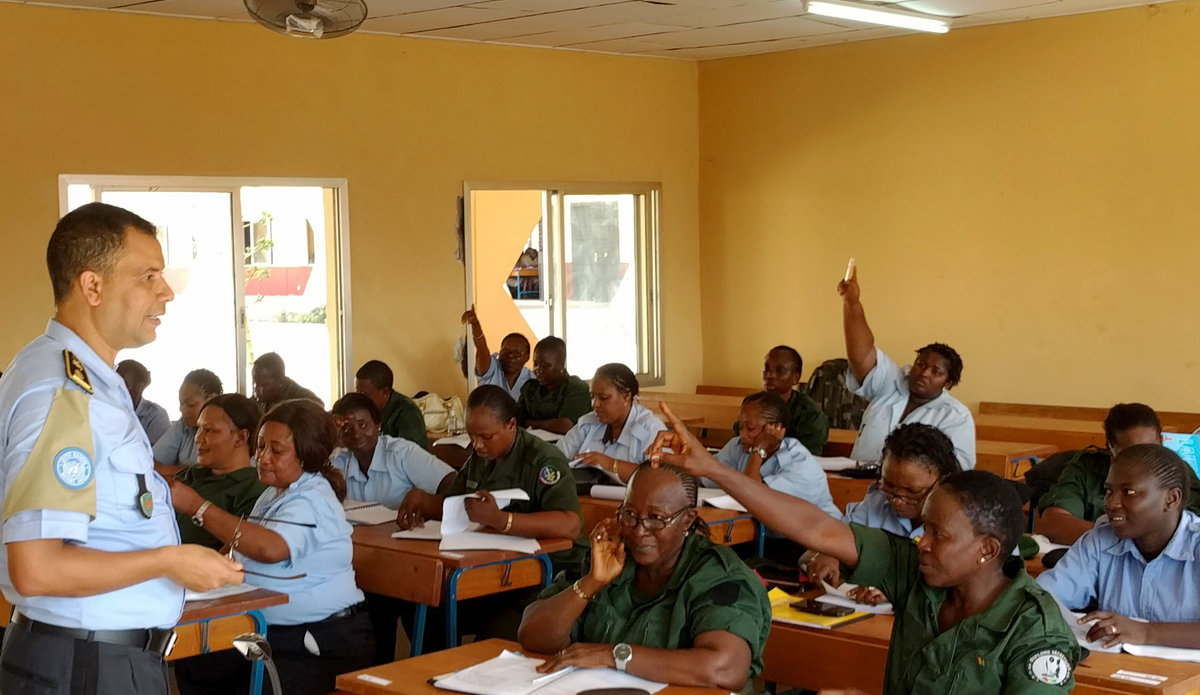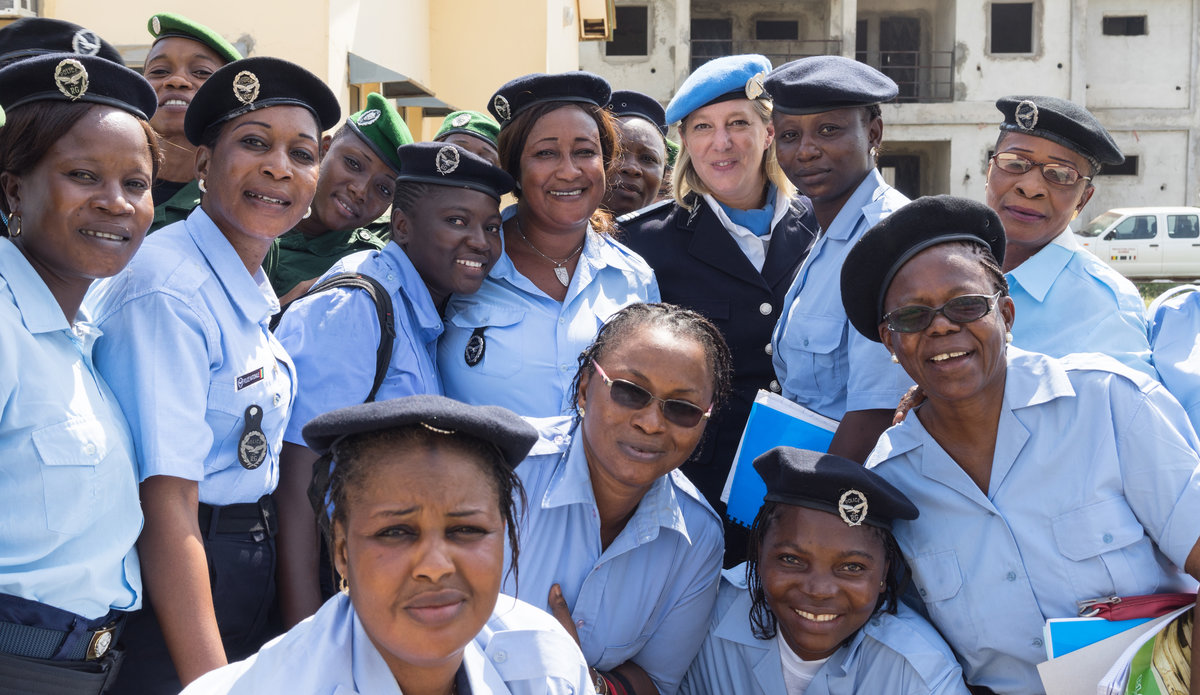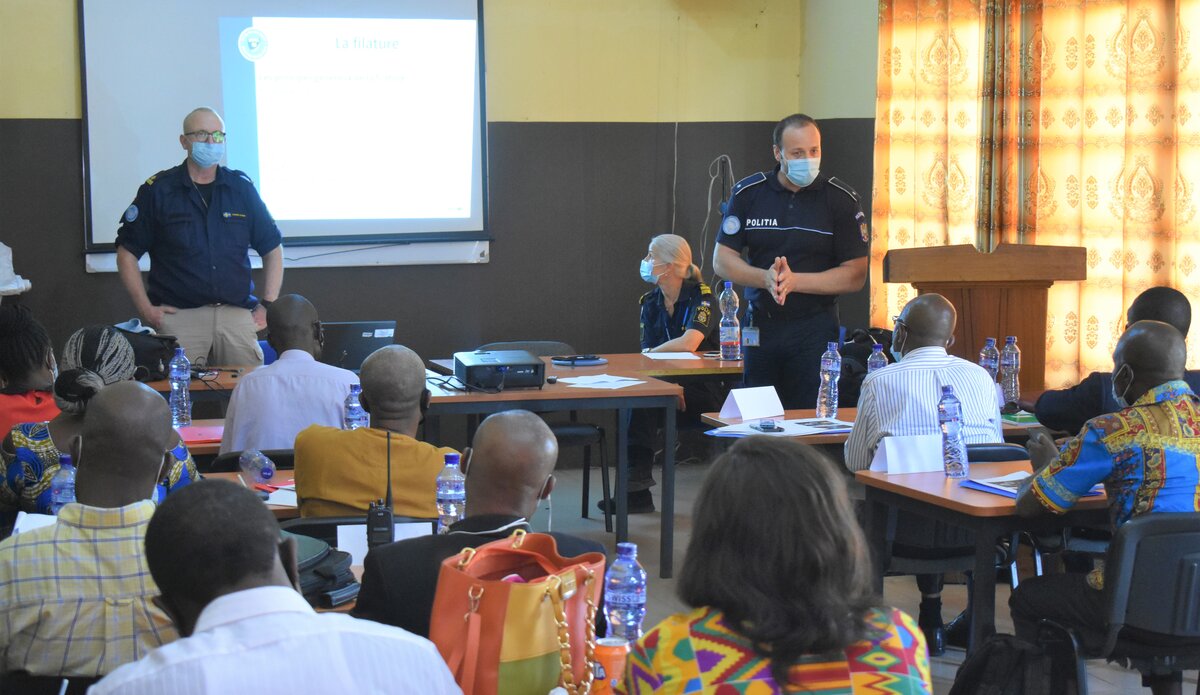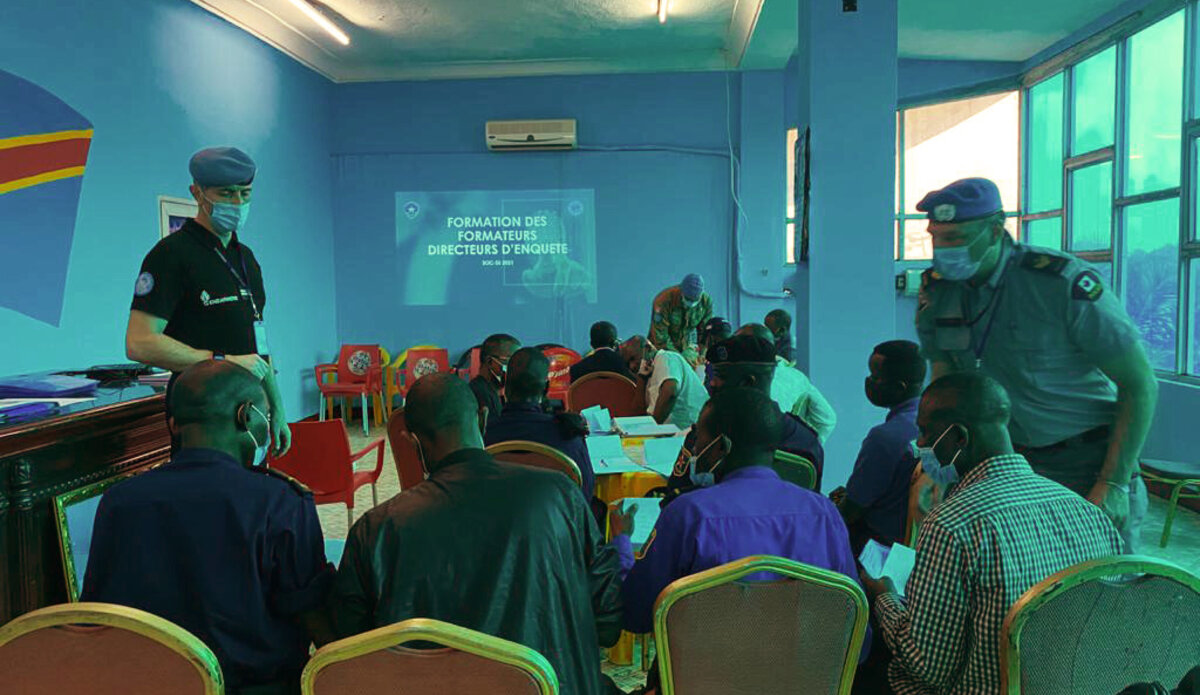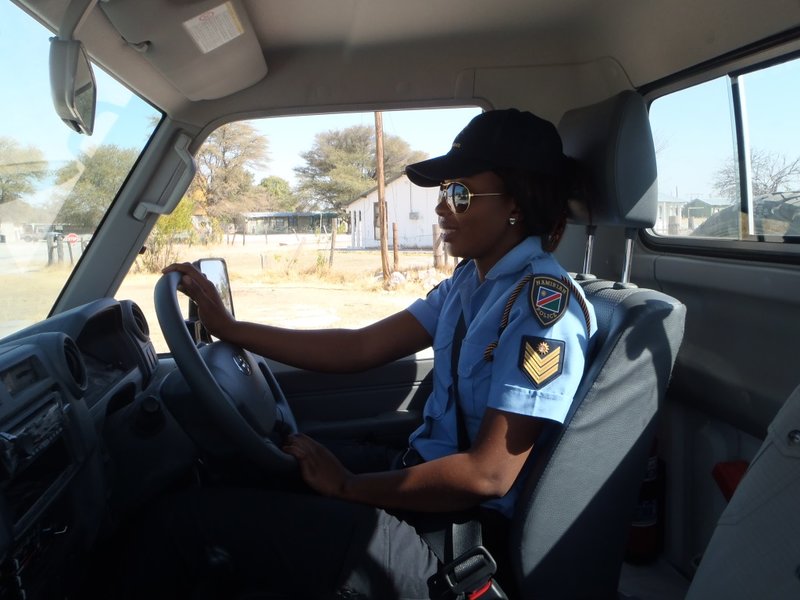Individual Police Officers: requirements and assessment for mission service
Any police officers, nominated by a Member State as Individual Police Officers (IPOs), for service with the United Nations must meet minimum requirements, including professional experience, language skills, mission-specific skills, driving skills and firearms proficiency, good understanding of United Nations PKOs and SPMs and its principles, Strategic Guidance Framework (SGF) and the mission mandate.
The mandatory assessment has been consulted and agreed with member states and is a pre-requisite for service with the UN, making it consistent and fair. The standards and evaluation is defined and explained in the Standard Operating Procedure: Assessment of Individual Police Officers for Service in United Nations Peacekeeping Operations and Special Political Missions.
The assessment can be taken by candidates’ in-mission. A candidate who does not pass the assessment will be repatriated at the cost of the Member State. Member States are strongly encouraged to request a United Nations Selection Assistance and Assessment Team (SAAT) to conduct the assessment. One SAAT can clear 50 to 800 candidates and each candidate that passes is cleared for 24 months for deployment with United Nations Police. Member States are strongly encouraged to nominate a minimum of twenty percent female candidates for each requested SAAT, as underlined in the Standard Operating Procedures on the assessment of individual police officers.
Required skills and expert profiles
Based on the increasingly complex policing tasks, mandated by the UN Security Council, UN police requires specialized skill sets and experts’ profiles for service in Peacekeeping Operations and Special Political Missions. To assist Member States with planning, UN Police lists expert profiles (example). In line with the Strategic Guidance Framework for International Police Peacekeeping (SGF), each profile is associated with one of guidelines on Police Operations, Capacity-building and development, Administration and Command.
In addition to the expert profiles, general abilities to transfer knowledge effectively, e.g. interpersonal skills, language skills (particularly English and French) and cultural sensitivity are important for UN police officers.
Rules and Regulations
The minimum requirements for mission service as defined in the Guidelines for United Nations Police Officers on Assignment with Peacekeeping Operations and other relevant guidance are briefly summarized below. Individual police officers must meet these minimum requirements to qualify for being eligible to take the assessment for mission service.
Age
- 25-62 years old (desired 55 years old or younger)
Experience
- Five (5) years excluding training;
- Retired personnel can be deployed if retired within the past 5 years.
The assessment process
The assessment for mission service addresses the following areas: language skills, driving skills, firearms handling and shooting skills, computer skills, knowledge of United Nations principles and standards, core values, and mission-specific skills.
Following the assessment, a briefing is provided to the candidate on the process leading up to possible deployment with United Nations Police. Only if the candidates pass each test, are they eligible for deployment with United Nations police.
The assessment includes
Language proficiency
- Mandatory language test (reading, listening, report writing and oral interview);
- Language of Operation, generally French and English.
Computer Skills
- A candidate should have good computer and technological skills.
Driving proficiency
- Required: one (1) year of recent driving experience; in possession of a valid national driving license for at least the duration of the candidate’s deployment;
- Mandatory driving test (handling, reversing, parking of manual fourwheel drive vehicle) by Selection Assesment and Assistance Team;
- Additional driving test in the respective mission, when deployed.
Firearms proficiency
- Firearms handling (cleaning, assembly of firearm) and shooting assessment (distance 5m and 7m with five rounds each; nine of ten rounds must hit the target)
Desirable complementary skills
- Previous experience in a UN mission;
- Proficiency in map reading, land navigation, use of global positioning systems;
- Knowledge of basic negotiation, mediation and conflict resolution;
- Interviewing techniques;
- Basic first aid.
Personal Qualities
- Good judgment, supported by a commonsense approach to problem-solving;
- Objective attitude, displaying tact and impartiality;
- Polite demeanour, combined with a firm but flexible and honest approach;
- Considerable selfdiscipline and patience;
- A friendly, open approach to other nationalities;
- Demonstrable leadership skills.
Responsibilities of Member States
According to the standard operating procedures on the assessment of mission service for individual police officers police contributing countries are expected to undertake five actions before a SAAT to facilitate its implementation:
-
Member State requests for UN Selection Assistance and Assessment Teams (SAAT) visits should be directed to the UN Police Adviser and submitted with a minimum of three months’ notice, indicating the number of candidates to be assessed (minimum of 50 and a maximum of 500 candidates).
-
Member States should pre-screen each candidate to ensure they meet the requirements for mission service as set forth in the Standard Operating Procedures and the Guidelines for United Nations Police officers on assignment with peacekeeping operations. Further, Member States are periodically provided, through their respective Permanent Missions in New York, with the required skill sets for Individual Police Officers (IPOs) in each UN peace operations. Therefore Member States should run a pre-SAAT screening of candidates' skill sets to determine their suitability and meet UN mission needs.
-
Member States should undertake pre-SAAT preparations and exercises to increase the number of candidates that pass the assessment for mission service. On average, the pass level is between 30 to 40 percent.
-
One month in advance of the SAAT visit, the Member State must submit a complete list of pre-selected candidates, including the candidates’ full name, gender, date of birth, valid photo ID numbers and the date of entry into active police service. The template is provided in Annex C of the Standard Operating Procedures. Once the Member State has submitted the list, no additions or substitutions can be made to it without the approval of the Police Division.
-
One month before the start of the SAAT visit, the Member State nominates a Liaison Officer for the visit and informs the UN Police Division of the name and contact details of the Liaison Officer.
-
At the time of submitting the list of candidates (AMS Nomination Form), the Member State has to certify in writing that pre-selected candidates have not been convicted of, are not under investigation, or being prosecuted for any criminal, human rights or disciplinary offence.
-
Member States should provide all necessary administrative and logistic support for the SAAT, as per Annex D of the Standard Operating Procedures.
Member States are strongly encouraged to nominate a minimum of 25 per cent female candidates for each assessment for mission service and facilitate women’s participation through specially tailored pre-selection training and other measures. For more information on the all-female SAAT training, click here.
Responsibilities of the Police Division
The Police Division organises SAATs for any of the 90 police contributing countries or new contributing countries, based on request and according to mission needs and the availability of instructors for the assessment for mission service. New or returning police contributing countries, countries increasing their contribution or providing officers that are much needed in the missions may be prioritized.
To assist Member States in their planning, the Police Division provides a list of required skills twice a year to the police contributing countries to allow them to better pre-select candidates. It is also published here.
In 2016, 16 SAAT visits took place in 17 countries. 5,041 officers were assessed, 1,705 (34 percent) passed the assessment for mission service and many already been deployed.

